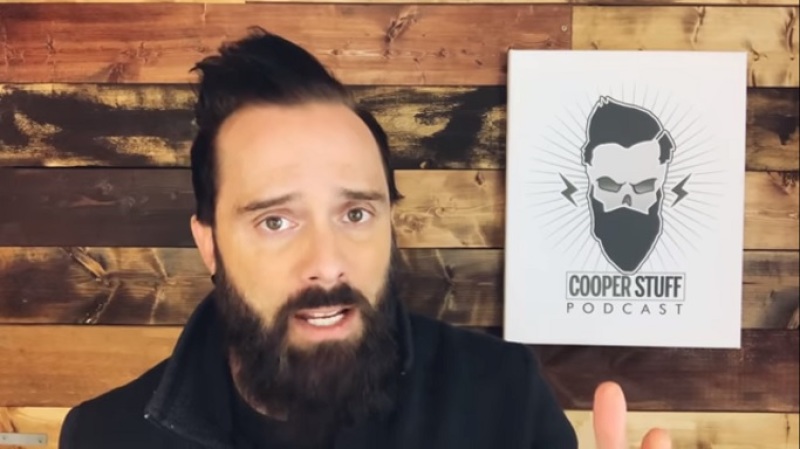
With Native Americans and Anglo-Americans on the verge of a racial war over the history of Thanksgiving, Skillet's frontman decided to record a podcast in support of Christians.
On November 29, Skillet's lead singer John Cooper confronts the accusations of racism, prejudice, and colonialism against Thanksgiving in the latest episode of the Cooper Stuff podcast.
Cooper cited a tweet from Black Lives Matter that reads, "You are eating eating dry Turkey and overcooked stuffing on stolen land."
Other tweets reflected the same thoughts. Without dismissing the injustice meted out to Native Americans, Cooper sought to bring clarity on the many perspectives on history. His concern is with progressives using Native Americans' struggle to denigrate the Christian foundations of early European settlers in America.
"We have to remember that Jesus Christ is Lord over history," he said.
Despite the hullabaloo surrounding the history of Thanksgiving, his premise is as follows:
"Number one, history is not a god and therefore it is not determinate on your future. Number two, in studying the past, we should distinguish between event history narrative history and steer clear from ideological history that's a big problem. Number three, adherence to God's design will lift all people up that's going to be for in the future."
Adherence to God's design is the key
Cooper admitted that America had committed several atrocities in the past. He said, however, that such a horrific history must be seen in light of humanity's desperate need for a Savior.
Nevertheless, Cooper saw the erroneous belief that man may be perfected in today's humanistic society, where social justice movements and even Christians are participating.
"They don't believe that men on and women are born in sin. They believe that we are born good, and we make choices and we actually can reach salvation on our own," he said.
As for the social justice warriors, he said they would still accuse white Americans of ignoring America's real history, despite America's previous good deeds and the attempts of godly leaders to correct historical injustices.
For Cooper, this has to be addressed head-on since most people don't realize that Christians and those in the social justice movement were not discussing the same history. That's not to say that this is a denial or an effort to rewrite the past. Rather, Cooper wanted to emphasize that when Christians celebrate Thanksgiving, they do it in the context of God's benevolence and favor toward the United States.
"History is complex, right? And we don't want to impugn motives to them just because we look back and say, 'Yeah they really shouldn't have done a b c and d," he said.
By virtue of fairness, Cooper argues it is unreasonable to embrace the ideology that claims every aspect of American life stems from racial colonialism, in which white Americans impose their version of reality on the new territory. That's not what Christians, like the Mayflower settlers, are thinking about when they speak about Thanksgiving.
"That's not what they mean," he said. "They mean the true history, meaning their narrative version. Not the horrible events that happened mixed with some of the good events that happened. It's the narrative that you're not learning....What is the gift that America gave to the world? ...in writing this is so wonderful, 'That all men are created equal.'"
As for those who accused him of neglecting the atrocities perpetrated against Native Americans throughout history, his response is:
"For all the christian social justice warriors that feel that I'm not giving enough weight to the past, I guess I would say to you, 'I think you are not giving enough weight to the God who changes the future.'"























